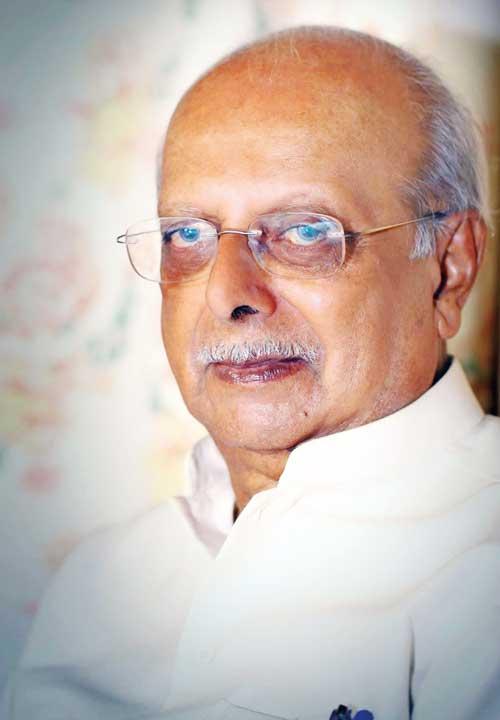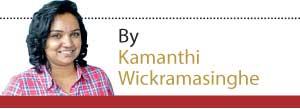ශ්රී ලාංකිකයන්ට මව්බිමේ මිහිදන්වීමට අයිතිය දිය යුතුයි
(නිමල කොඩිතුවක්කු)
ඕනෑම ශ්රී ලාංකිකයෙක්ට තම මරණයෙන් පසු ගෞරවාන්විතව සිය මව්බිමෙහි මිහිදන්වීමට ඇති අයිතියට ඉඩ දිය යුතු බව සාධාරණ සමාජයක් සදහා වූ ජාතික ව්යාපාරයේ සභාපති හිටපු කථානායක කරු ජයසූරිය මහතා සඳහන් කරයි.
ලෝක සෞඛ්ය සංවිධානය හා එක්සත් ජාතීන්ගේ සංවිධානය විසින් මේ වනවිටත් ලබාදී ඇති නිර්ණායකයන්ට හා මඟපෙන්වීම්වලට ගරු කරමින් ශ්රී ලංකාවේ මුස්ලිම් ජාතිකයන්ගේ අවමංගල්ය කටයුතු ඔවුන්ගේ ගරුත්වයට හේතුවන ආගමික සිරිත් අනුව සිදුකිරීමට අවශ්ය පියවර ගන්නා ලෙසට රජයෙන් ඉල්ලීමක් කරන බවත් ජයසූරිය මහතා නිවේදනයක් නිකුත් කරමින් සඳහන් කරයි.
එම නිවේදනයේ තවදුරටත් මෙසේද සඳහන් වේ.
"ශ්රී ලංකාවේ උපන් සිංහල දෙමල,මුස්ලිම් හෝ වෙනත් ඕනෑම ජාතිකත්වයකට හෝ ජන වර්ගයකට අයත් පුද්ගලයෙකුට තම මරණයෙන් පසු ස්වකීය මව්බිමෙහි ගෞරවාන්විතව මිහිදන්වීමට අවස්ථාවක් නොදී බලහත්කාරයෙන් වෙනත් රටක භූමදාන කිරීමට කටයුතු යොදන්නේ නම් එය මියයන පුද්ගලයන්ට මෙන්ම ශ්රී ලංකාවටද කරන්නා වූ බලවත් අවමානයකි. එවැනි යම් හෝ උත්සහයක් මඟින් සිදුකරන්නේ රටක් ලෙස ශ්රී ලංකාව බලවත් හෑල්ලුවට ලක්කිරීමකි.
කොවිඩ් වසංගතයෙන් මියයන ලාංකීය මුස්ලිම් ජාතිකයන් මාලදිවයින තුළ භූමදාන කිරීම සඳහා ශ්රී ලංකා රජය එරට සමඟ සාකච්ජා කළ බවට පලවූ වාර්තාවන් පිලිබදව සාධාරණ සමාජයක් සඳහා වන ජාතික ව්යාපාරය බලවත් කනස්සල්ට පත්වූ අතර මේ ආකාරයට අප මාතෘ භූමිය කවරෙකු විසින් හෝ හෑල්ලුවට ලක්කිරීම ගැන සංවිධානයක් ලෙස අපි දැඩි ලෙස සංවේගයට පත්ව සිටින්නෙමු.
කෝවිඩ් 19 වෛරසය හේතුවෙන් මියයන පුද්ගලයන්ගේ අවසන් කටයුතු සිදු කිරීමේදී අනුගමනය කල යුතු ආකාරයන් පිලිබදව ලෝක සෞඛ්ය සංවිධානය මෙන්ම එක්සත් ජාතීන්ගේ සංවිධානයද ලබාදී ඇති උපමාන වලට පරිබාහිරව කටයුතු කිරීම මඟින් මෙන්ම වෛද්ය විද්යා ක්ෂේත්රෙය් පිලිගත් පර්යේෂණ නිගමනයන්ට බැහැරව යමින් අදානග්රාහිත්වයෙන් යුතුව කටයුතු කිරීම නොකල යුත්තකි. අප කුමන හෝ කරුණක් මුල් කරගනිමින් එවැනි අගතිගාමී ස්ථාවරයන්ට එළඹෙන්නේ නම් එමඟින් සිදු කරන්නේ ශීලාචාර ලෝක ප්රජාවගෙන් අප මාතෘ භූමිය දුරස් කිරීමකි. ශ්රී ලංකා රජය මේ පිලිබදව ගැඹුරින් තේරුම්ගත යුතුව තිබේ.
මෙම සංවේදී කාරණයට අදාලව රජය නොයෙක් ආකාරයේ සාකච්ජාවන්හි නිරතව සිටින බවට වාර්තා පළවන්නේ වුවද මේ දක්වාම නිශ්චිත වූ යහපත් තීරණයක් ගැනීමට ප්රමාද කිරීම තේරුම්ගත නොහැකිය. එමඟින් සිදුවන්නේ ශ්රී ලංකාවේ මුස්ලිම් ජනතාව වෙනස් කොට සලකන බවට බාහිර සමාජය තුළ අපකීර්තිමත් මතයක් ගොඩනැගීමට අනුබල සැපයීමකි. එමෙන්ම ශ්රී ලංකාවට එරෙහිව කටයුතු කිරීමට අපේක්ෂා කරන ඕනෑම ආකාරයේ අන්තවාදී බලවේගන්ට අවශ්ය ඉඩකඩ නිර්මාණය කිරීමකි. මේ වනවිටත් ලෝකයේ රටවල් ගණනාවකම ප්රධාන නගර කිහිපයකදීම ශ්රී ලංකාවට එරෙහිව සංවිධානය කර තිබූ විරෝධතා රැළි කෙරෙහි අවධානය යොමුකිරීම මඟින් ද ඒ බව අවබෝධ කරගත හැක.
ඒ අනුව සාධාරණ සමාජයක් සඳහා වන ජාතික ව්යාපාරය මේ අවස්ථාවේදී රජයෙන් ඉල්ලා සිටින්නේ යුක්තියේ, සාධාරණත්වයේ මෙන්ම මනුෂ්යත්වයේ නාමයෙන් බුද්ධිමත්ව තීන්දු තීරණ ගන්නා ලෙසටය. ලෝක මට්ටමේ පිලිගත් විශේෂඥ උපදෙස් මත ක්රියාකරමින් ලෝක සෞඛ්ය සංවිධානය හා එක්සත් ජාතීන්ගේ සංවිධානය විසින් මේ වනවිටත් ලබාදී ඇති නිර්ණායකයන්ට හා මඟපෙන්වීම්වලට ගරු කරමින් ශ්රී ලංකාවේ මුස්ලිම් ජාතිකයන්ගේ අවමංගල්ය කටයුතු ඔවුන්ගේ ගරුත්වයට හේතුවන ආගමික සිරිත් අනුව සිදුකිරීමට අවශ්ය පියවර ගන්නා ලෙසටය.
http://www.lankadeepa.lk/news/%E0%B7%81%E0%B7%8A%E2%80%8D%E0%B6%BB%E0%B7%93-%E0%B6%BD%E0%B7%8F%E0%B6%82%E0%B6%9A%E0%B7%92%E0%B6%9A%E0%B6%BA%E0%B6%B1%E0%B7%8A%E0%B6%A7-%E0%B6%B8%E0%B7%80%E0%B7%8A%E0%B6%B6%E0%B7%92%E0%B6%B8%E0%B7%9A-%E0%B6%B8%E0%B7%92%E0%B7%84%E0%B7%92%E0%B6%AF%E0%B6%B1%E0%B7%8A%E0%B7%80%E0%B7%93%E0%B6%B8%E0%B6%A7-%E0%B6%85%E0%B6%BA%E0%B7%92%E0%B6%AD%E0%B7%92%E0%B6%BA-%E0%B6%AF%E0%B7%92%E0%B6%BA-%E0%B6%BA%E0%B7%94%E0%B6%AD%E0%B7%94%E0%B6%BA%E0%B7%92/101-583671
By Mass L. Usuf –
On 09/12/2020, at the Committee Stage Debate in the Parliament on the Appropriation (2021) Bill, Honourable Member of Parliament Mr. M.A. Sumanthiran made some terse remarks given the limited time allotted to him.
He justified the need for an international inquiry and international judicial process to look into serious crimes committed in this country which has an impact on international law. In order to drive home his point, he alluded to several instances and, euphemistically made reference to the “depths to which your judicial system has sunk”. As a recent example he cited Mr. Hejaaz Hizbullah, an Attorney at Law who is currently in detention. Mr. M.A. Sumanthiran said, “a brilliant young lawyer denied justice for eight months. All kinds of false allegations were made against him.” Further, he drew attention to the fact that if there were any grounds for prosecution, they should have filed charges against him. The Opposition Member of Parliament questioned the Minister of Justice Mr. Ali Sabry “what were you doing for eight months?”
Voicing concern over the sacrosanct Attorney/Client communication, he pointed out that two of the client briefs of Attorney Mr. Hejaaz Hisbullah were taken away. He also deplored the fact that Hejaaz had not been given proper access to his lawyer. Mr. Sumanthiran then emphatically asked the million-dollar question, “if you treat a lawyer like that how do we expect you to treat anybody else?”
Silencing The Voice
Like Mr. Sumanthiran not many Muslim politicians dare to express themselves in Parliament. One may question, why not? The answer is in the lack of cohesiveness between the Muslim politicians, at least on matters of common interest. It is very rare. Some are gagged by the influence of external factors, political slavery. Ironically, among them are also those probably not really aware why the hell they are sitting in Parliament – day dreaming!
As for the handful of the handful who wish to speak, the moment they do say something relating to the detention of Hejaaz and the many others or on any matter relating to the Easter Sunday attack, they would be accused of aiding and abetting extremism. Many government members in Parliament, deliberately do not allow the person to speak by drowning his voice with louder noise of interruptions and unruly behaviour.
Hot on the heels of such accusations are the notorious spin doctors, the media. They would build up a misleading or deceptive story incriminating the politician to create a negative impact of that person. Other vested interests, in this grand agenda, would pick it up from there and give their own interpretation, modify and reframe the allegations exacerbating the negative public opinion created. By this method the voice of the few who have the nerve to speak are often silenced or overwhelmed by disturbance. Freedom of expression, leave alone outside the Parliament, even under the Parliamentary Privileges has been stultified in our august assembly by vested interests.
Psychological Torture
Mr. Hejaaz Hizbullah is not alone. Like him there are so many others under detention orders unable to make sense of what is in store for them. Neither charged nor released, they are in a continuous state of suspense. Just like a live bird in a skewer over fire. It does not want to die burning but, yet, it does not have the freedom to fly away. This state of affairs naturally causes much anxiety and depression not only to those who are detained in this manner but also to the near and dear ones. This is plain and simple mental torture violating the fundamental right against torture enshrined in the constitution besides the international ratifications.
(1) The Charter of the United Nations in relation to obligation of States under the Charter states in Article 55 (c):
“universal respect for, and observance of, human rights and fundamental freedoms for all without distinction as to race, sex, language, or religion.”
(2) The United Nations Universal Declaration of Human Rights 1948 banning torture mentions in Article 5:
“No one shall be subjected to torture or to cruel, inhuman or degrading treatment or punishment.”
(3) The ban is further enshrined in Article 7 of the International Covenant on Civil and Political Rights:
“No one shall be subjected to torture or to cruel, inhuman or degrading treatment or punishment.”
(4) The Convention against Torture and Other Cruel, Inhuman or Degrading Treatment or Punishment adopted in 1984 defines torture, in Article 1.1:
“For the purposes of this Convention, the term “torture” means any act by which severe pain or suffering, whether physical or mental, is intentionally inflicted on a person …”
Article 2.2
“No exceptional circumstances whatsoever, whether a state of war or a threat of war, internal political instability or any other public emergency, may be invoked as a justification of torture.”
The infamous PTA
The infamous and dreaded Prevention of Terrorism (Temporary Provisions) Act, No. 48 of 1979 as amended provides the legality for such incarceration. The PTA was a law enacted to prevent terrorism but it is alleged that many people with no connection to terrorism have been arrested and detained under its provisions.
Imagine the sorry predicament of an Attorney who is supposed to work for the advancement of civil liberties, fearing for his own civil liberty. Is it something to laugh at or a signification of a continuously corroding system? The constant reminder of what happened to Hejaaz hangs like the Sword of Damocles over the head of Muslim lawyers. They were in other words indirectly pressurized into silence except for some selected Attorneys. Who would want to face the situation that Hejaaz Hizbullah is in? This form of pressure is not sustainable because with the passage of time, people do bounce back when the level of tolerance is exceeded.
Fear Psychosis At Work – Lawyers
With the arrest of Hejaaz, the Muslims lawyers felt an unprecedented sense of insecurity in their professional and personal life. Such was the threat of the PTA and its tool of unpredictable detention. Members of the legal profession are supposed to be in a privileged status because they are part of ‘the administration of justice and essential for the maintenance of law and order and the preservation and advancement of civil liberties and the maintenance in general of the rule of law’. (Professional Ethics, A.R.B. Amerasinghe, Page 43)
We also witnessed the most unfortunate split among lawyers on the matter of Hejaaz. Can it be considered fair if the public questions the depth to which the legal profession has sunk. (See: Gota’s ‘Sinhala-only’ lawyers mount offensive to keep Attorney Hejaaz Hizbullah in illegal detention, Colombo Telegraph: 02/05/2020).
Such unprofessionalism was openly noticed among some of the doctors too, who failed to speak out on Dr. Shafi’s issue, the so called ‘wanda pethi’ and so many other stupidest allegations made.
It is a shame to see professionalism being a pawn to racism and racist agendas. Professional ethics and conduct demand a level higher than the conduct of an average person. “The legal profession has a responsibility to ensure that its guiding principles are conceived in the public interest and not in furtherance of parochial or self-interest concerns of the Bar and its members.” (ibid, Page 43).
Unaware of the pressure, limitations and fear that had mentally terrorised most of the Muslim lawyers, the Muslim community was often accusing the Muslims lawyers for maintaining silence at times they were supposed to speak out.
In the words of Crampton J. in Rex v. O’Connell:
“This court in which we sit is a temple of justice; and the advocate at the bar, as well as the judges upon the benches, are equally ministers in that temple. The object of all equally should be the attainment of justice; now justice is to be reached through the ascertainment of the truth…”
It is time that the legal fraternity get their act together and function in furtherance of justice, equity and fairness. Let the lawyers stand up as true and good professionals and be an example to other professions as well. The Bar Association of Sri Lanka as the premier institution of the legal profession may have a major role to play in this area o
https://www.colombotelegraph.com/index.php/analysing-sumanthiran-a-reality-check-on-hejaaz-muslim-politicians-lawyers/?fbclid=IwAR2t-wtdscB6fUxBX74FHIfmtnbQqMDuSkjqBUOKSvChvzYYTl2QbWdJGs8


 now in the community and nobody has immunity against it since it’s a new virus. He made these observations in his capacity as a specialist in the fields of bacteriology and virology. Having obtained a Diploma in Bacteriology from the London School of Hygiene & Tropical Medicine and a Ph.D. in virology from the University of London, he also served as the Director of the Medical Research Institute in Colombo. He headed MRI’s virology department and apart from that he was a consultant virologist at the Edinburgh City Hospital’s Regional Virus Laboratory and deputy director of the Victoria Infectious Diseases Reference Laboratory in Melbourne. He was the leader of the Lanka Samasamaja Party prior to joining the SLPP.
now in the community and nobody has immunity against it since it’s a new virus. He made these observations in his capacity as a specialist in the fields of bacteriology and virology. Having obtained a Diploma in Bacteriology from the London School of Hygiene & Tropical Medicine and a Ph.D. in virology from the University of London, he also served as the Director of the Medical Research Institute in Colombo. He headed MRI’s virology department and apart from that he was a consultant virologist at the Edinburgh City Hospital’s Regional Virus Laboratory and deputy director of the Victoria Infectious Diseases Reference Laboratory in Melbourne. He was the leader of the Lanka Samasamaja Party prior to joining the SLPP. Q
Q  not. We need to follow health precautions as a habit. Now there’s an element of fear and it is the authorities who are communicating the message and people are reacting to the authoritative approach. We see people wearing the mask on the neck and wearing it properly when they see the police. By this health education system it will be digested mentally and every person will realise that there’s a danger to one’s life out of self-interest. If we protect ourselves by observing these three rules then the virus itself will die out of the country and we will be free of the epidemic. The PHIs, midwives can do this health education programme, but the decision has to be taken from the top. This will be the lasting and cheapest solution rather than getting vaccines from abroad which are questionable.
not. We need to follow health precautions as a habit. Now there’s an element of fear and it is the authorities who are communicating the message and people are reacting to the authoritative approach. We see people wearing the mask on the neck and wearing it properly when they see the police. By this health education system it will be digested mentally and every person will realise that there’s a danger to one’s life out of self-interest. If we protect ourselves by observing these three rules then the virus itself will die out of the country and we will be free of the epidemic. The PHIs, midwives can do this health education programme, but the decision has to be taken from the top. This will be the lasting and cheapest solution rather than getting vaccines from abroad which are questionable.